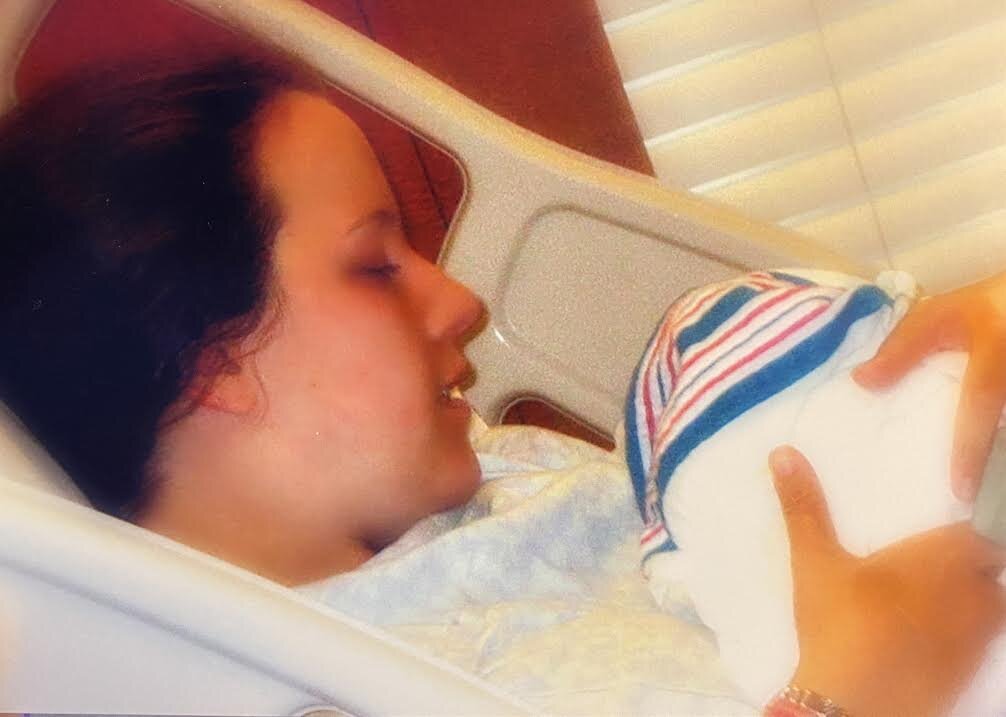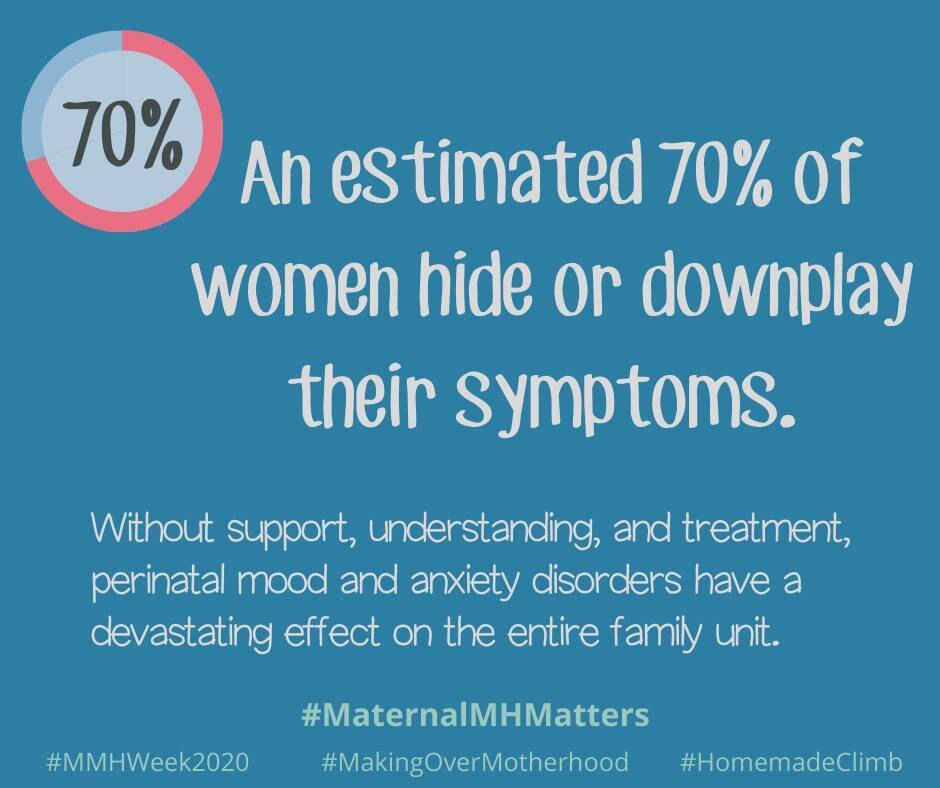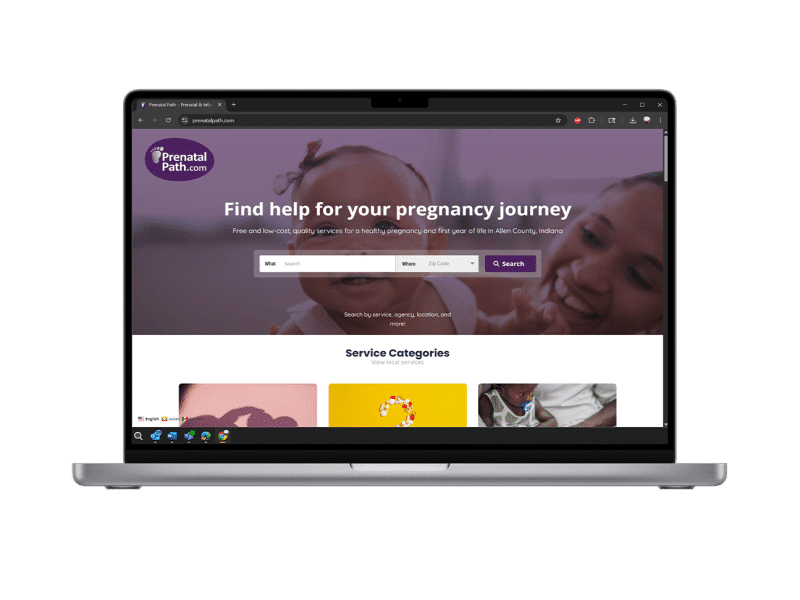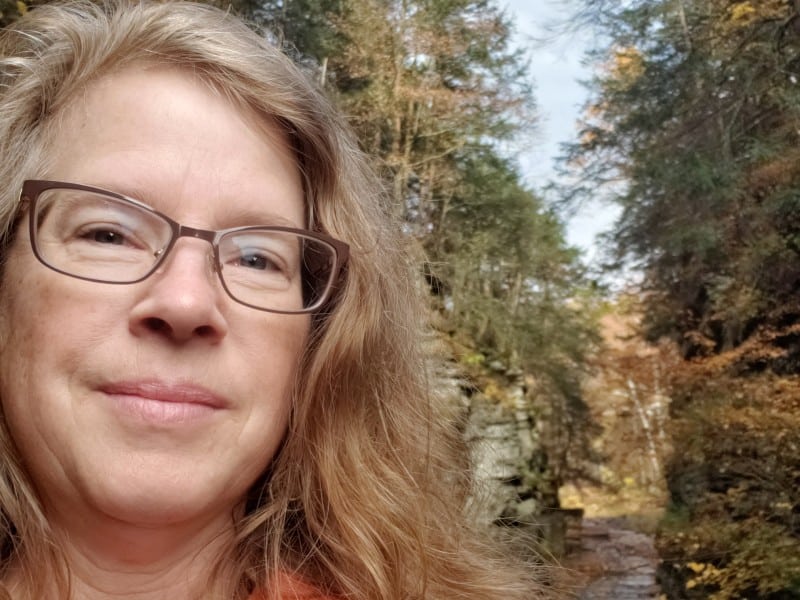Blog: Maternal Mental Health Awareness Week reminds us to reach out to the mothers in our lives
“A little understanding in raising our mothers goes a long way in moving a community forward."

How does a mother say that she is not bonding with her baby? How does a mother say that she has an anger—a sadness that she has never felt before? How does a mother say that she is afraid of being left alone with her baby or herself because she fears what she might do? How does a mother express these thoughts and believe that they will be understood?
A mother cannot freely and safely express these thoughts until we, as a community, can show that we support and understand her.
This week is Maternal Mental Health Awareness week (May 4-8), so let us take this time to understand maternal mental health so we can raise our mothers to have a voice. Trauma or feelings of guilt, depression, and anxiety lead to delayed maternal bonding that is essential to the physical and mental health of a mother and her child. Maternal mental health matters because it affects everyone.
According to The Blue Dot Project, “Maternal Mental Health (MMH) disorders include a range of disorders, including depression, anxiety, and psychosis and can occur within pregnancy or the postpartum period (together often referred to as the perinatal period). When left untreated, these disorders can cause devastating consequences for the mother, her baby, her family, and society.”

I’m writing to you today because I experienced Post-Partum Depression (PPD) 10 years ago after the traumatic birth of my first son. Earlier last year, I nervously shared my own story on the TEDx Fort Wayne stage to teach how we can raise our mothers who may be struggling with maternal mental disorders.
The one thing that I learned is that Postpartum Depression does not listen to what anyone else has to say, so we must speak louder. We cannot be ashamed or hide our scars, but share our story and break the cycle of silence.
Every mother has her story. Whether her story begins with natural birth, a medicated birth, a C-section, miscarriage, stillborn, adoption or longing for a child in her heart—it is hers. It can be passionate or painful, beautiful or traumatic, or all these emotions and experiences jumbled together, moment to moment.
All mothers must know that they will be heard and are seen by an unconditionally supportive community. I believe that through implementing increased Reverence, Awareness, Inclusion, Support and Education our community can create a substantial difference in the lives of mothers and their children.
A simple acronym—R.A.I.S.E. Here’s how:
R: Reverence:
An act of kindness for a mother can be as simple as asking, “How are YOU doing?” before you ask about the new baby or her children. Mothers surround us, and yet, in our digital world we can become engulfed in our own lives, losing a sense of a true empathy for those who raised us. A genuine compliment to a mother can go a long way in her own well-being and the well-being of her children.
With Mother’s Day around the corner, think of a mother who is a co-worker or friend, and reach out to tell her. Tell her what a stellar job she is doing. I assure you; she needs to hear it.

A: Awareness:
According to Postpartum Support International (PSI), “As many as 1 in 7 moms (1 in 10 dads) experience symptoms of depression and anxiety during the postpartum period. People of every age, income level, race, and culture can develop Perinatal Mood and Anxiety Disorders (PMADs) during pregnancy and within the first year after delivery.”
This is a common experience as a mother, and the more we speak out about this very fact, the more we can reduce the stigma surrounding maternal mental health.
I: Inclusion:
It takes a village. Whether we are surrounded by family, friends, co-workers, playgroups, or strangers, mothers need a supportive community in which to grow and raise their children. Postpartum depression and anxiety can be extremely isolating experiences. Mothers need people be present in their lives, lifting them up and giving them a voice. Mothers must be surrounded on their darkest days and reassured that their best IS enough, so they can reflect that unconditional love and support to their own children.

S: Support:
If you or someone you know may be struggling, reach out. You are not alone. Speak to your partner. A friend. A family member. It can be hard to ask for help, and it can be just as hard to accept it, but do not stop reaching out. Remember: It is okay not to be “okay.” There is healing. There is hope. We are all in this together.
If you have a friend, family member or coworker who recently had a child, whether it is their first or fifth, check in on them. Let them know you are thinking of them and provide a safe place to express all the highs and lows of parenting.
E: Education
Read all the parenting books, take all the classes, but most importantly, becoming a mother comes through experience. Motherhood is a journey. A journey that needs to be taken along with supportive partners, family, friends, and a community that understands it is okay not to be okay all the time. Allow a mother to be heard through her own experience. A little understanding in raising our mothers goes a long way in moving a community forward.
If you or someone you know is struggling with postpartum depression, anxiety, or psychosis, please seek support. There are local resources available to you with open arms and without judgment.
Local Postpartum Support Group:
Local Infant Loss Support:
Online/Virtual Resources:
Postpartum Support International










